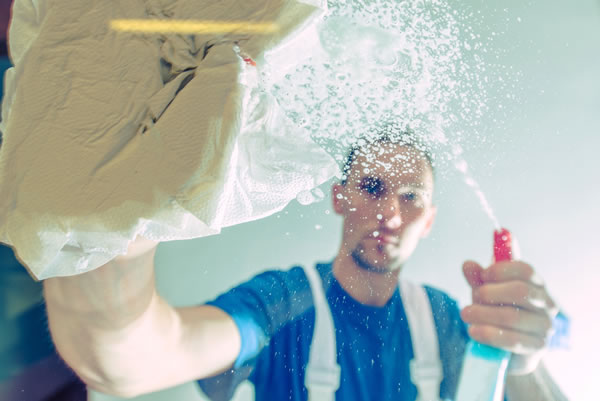Improvements to your home



Gas Servicing
Each year we carry out an annual gas service to ensure gas appliances within your home are safe. This is a legal requirement for landlords.
Every year around 30 people die in the UK, with many others severely ill, from carbon monoxide poisoning caused by gas appliances and flues which have not been properly maintained. This unacceptable number of deaths would be even higher if it wasn't for the strict legislation in the UK. You can't see it, you can't taste it and you can't even smell it, but carbon monoxide can kill without warning in just a matter of hours.
The service should last around 30 minutes. If you cannot give access personally then perhaps a friend or relative can. Should you have difficulty allowing us access during the day we can make a specific appointment normally within a 2-hour time slot if you contact us in advance of your appointment date. The contractor City Technical Services will arrange an appointment to visit your home to carry out this essential service.
We will write to you with an appointment should you fail to provide access, another appointment will be issued which you must provide access for or contact Thenue to re-arrange. If you further fail to provide access or to contact us we will pass your information to your housing officer to carry out abandonment proceedings. If access for the gas service is still not provided then the Association will take the necessary action to gain access to the property on the legally due date. Access will be forced to the property and you may also be charged all costs associated with forcing access to the property.
Contacting Us
We offer a variety of ways for you to contact us to make a suitable appointment
Telephone: 0141 550 3581, Please ensure on any message left you leave your full address and a contact telephone number
Cyclical Maintenance
We carry out the following cyclical maintenance:
- Cleansing Services:
We provide a backcourt cleansing service which is carried out by Idverde. Idverde also provide a bulk uplift service. Both of these are carried out on a weekly basis.
- Close Cleaning:
Our Contractor Pro-Tec undertake a weekly close cleaning service for residents in closes, who have agreed to participate.
- Controlled Entry:
We currently have a programme underway With Spie Scotshield to maintain our controlled entry systems on our close doors.
- Electrical Safety:
We carry out an electrical test on all of our properties which are over five years old. This is carried out every five years to ensure that our electrical wiring etc is meeting the current standards. Thenue will force access into tenanted properties should tenants fail to respond to appointments for access to carry out these essential checks.
- Gutter Cleaning:
We have a programme underway to identify which properties require an annual/bi-annual clean. Tenants will be contacted annually should access into garden areas be required to carry out the works.
- Roof Anchor Testing:
We carry out an annual test of all our roof anchors to ensure that they are fit for use by contractors accessing the roof.
- Landscape Maintenance:
Our Contractor Idverde carries out our grounds maintenance contract – working across all our locations: carrying out grass cutting/pruning/weeding/litter picking/ tree works where required and hard landscaping upon request.
- Stair lighting:
We have a contract in place with GCC to maintain our stair lighting within our closes.
Medical Adaptations
We receive funding each year from Glasgow City Council to undertake Medical Adaptations via a referral from an Occupational Therapist. These are registered on our waiting list on a date and priority basis. Once funding is granted we carry out surveys to the properties and instruct our contractor to proceed with the works agreed with the tenant, their OT and Thenue.
We aim to carry out as many adaptations as possible, however this can vary annually as we are dependant on the amount of funding we receive.
Examples of Adaptations that we install are:
- Level Access Shower
- Wet Floor Shower Installation
- Over Bath Shower
- Lever Taps
- Handrails
These are not exhaustive and others will be looked at on an individual basis as referred by the Occupational Therapist.
Please contact Laura Beaton, Project Officer 0141 550 9546 or Lesley Gilhooly 0141 550 9547 for further information.
Condensation
Watch our video on condensation and tips on how to prevent it:
So what is condensation?
Condensation is water that collects as droplets on a cold surface when warm air is in contact with it. You may have seen some on your windows, tiles, mirrors, or even your walls and ceilings. Condensation is the most common form of dampness found within buildings and is often confused with structural dampness. However, if ignored, it can also cause serious damage to your home and belongings. As such, it is important to know what causes condensation and what you can do to minimize it in your home.
What causes condensation?
There are three main causes of condensation:
- Moisture in the air. Moisture is generated when you are cooking bathing, drying clothes and even just breathing. In fact, an average 5% of household releases around 10 litres of water into the air each day.
- Inadequate and intermittent heating. If your home is not properly heated, moisture will begin to build up in the air and there will be more cold surfaces for this could turn into condensation.
- Poor ventilation.
Although it may be tempting to keep vents and windows closed, especially when it's cold, this restricts the movement of air and keeps moisture trapped in the property. In new build homes, the materials used in the construction process will have absorbed many litres of water. So properly heating and ventilating your home is even more crucial. What are the. Of condensation in areas with heavy condensation. Absorbent surfaces such as plasterboard, furniture and clothing will act like a sponge and absorb moisture in the air. When the surface absorbs a lot of moisture. Then mould spores will start to appear. Mould spores need to be dealt with.
Using an appropriate cleaning product as simply wiping the area with a damp cloth will only spread the spores around.
Here are some top tips to prevent condensation from forming in your home.
- Use your central heating rather than portable paraffin, bottled gas or other vapour-producing heaters to keep your heating on a timed low background heat rather than short bursts of high-temperature heat.
- Open windows, regularly keeping the door close to the room that is being vented to retain heat. And the rest of the.
- Close doors when using your kitchen or bathroom to contain any moisture within one room. Keep other internal doors open to allow air to circulate.
- Dry clothes outside where possible. During the winter months. Make sure you dry them in a closed and well-ventilated room or vented condensing tumble dryer. Ventilate built-in wardrobes and cupboards and make sure they're not overfilled.
- Always keep a gap between walls and your furniture to allow free passage of air.
- Make sure your air vents aren't blocked by furniture or other items as this will restrict air circulation. Following these tips will help to keep your home condensation free.

